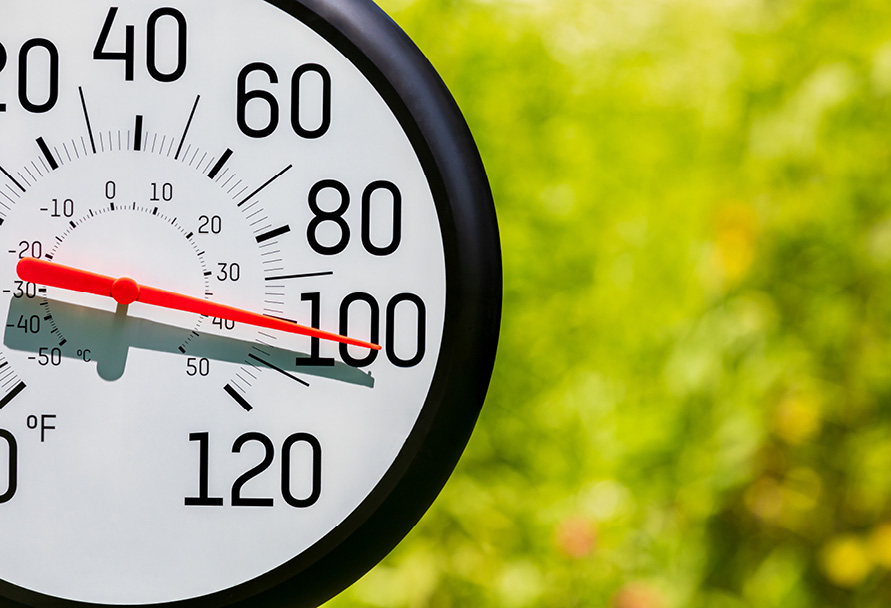Heat safety

If you smell a gas odor, immediately evacuate from the building or area. Once you’re away from the building, call 911. Or, if you see damaged lines, leave the area immediately and call 911. Then, call us at 888-890-5554 to report the problem.
Extreme temperatures can lead to heat-related illnesses, like heat exhaustion or heat stroke. Children, older adults, outside workers and individuals with disabilities may be at greater risk.
Here are some tips to follow to stay safe during extreme heat
- Stay cool in an air-conditioned area. Especially during the hottest part of the day, stay inside and out of direct sunlight.
- Stay hydrated. Dehydration increases the risk of heat-related illnesses, so drink plenty of water. Avoid caffeine, alcohol and sugary beverages.
- Avoid strenuous activities. Any outdoor work, exercise or high-intensity recreation should be avoided or scheduled for the coolest part of the day.
- Dress for summer. If you must be outside, wear lightweight, light-colored, loose-fitting, breathable clothing.
- Do not leave children or animals in vehicles. During extreme heat, the temperature in a vehicle can be deadly — even with an open window.
Staying cool during extreme heat
Extreme heat places additional demands on your home’s air conditioning, as well as the areas electricity infrastructure. It’s important to stay cool, and the following tips can help you balance energy efficiency with personal comfort.
- Set your thermostat to 78 degrees when you’re home, and 85 degrees while you’re away. A smart thermostat can automate this for you.
- Use fans to help circulate the air.
- Close curtains and blinds so that sunlight isn’t warming your home.
- Avoid using washing machines and dishwashers during the hottest parts of the day. Instead, use them in the early morning or late evening.
- Replace your HVAC filter when needed for better air circulation.
Learn more about saving energy during warm weather.